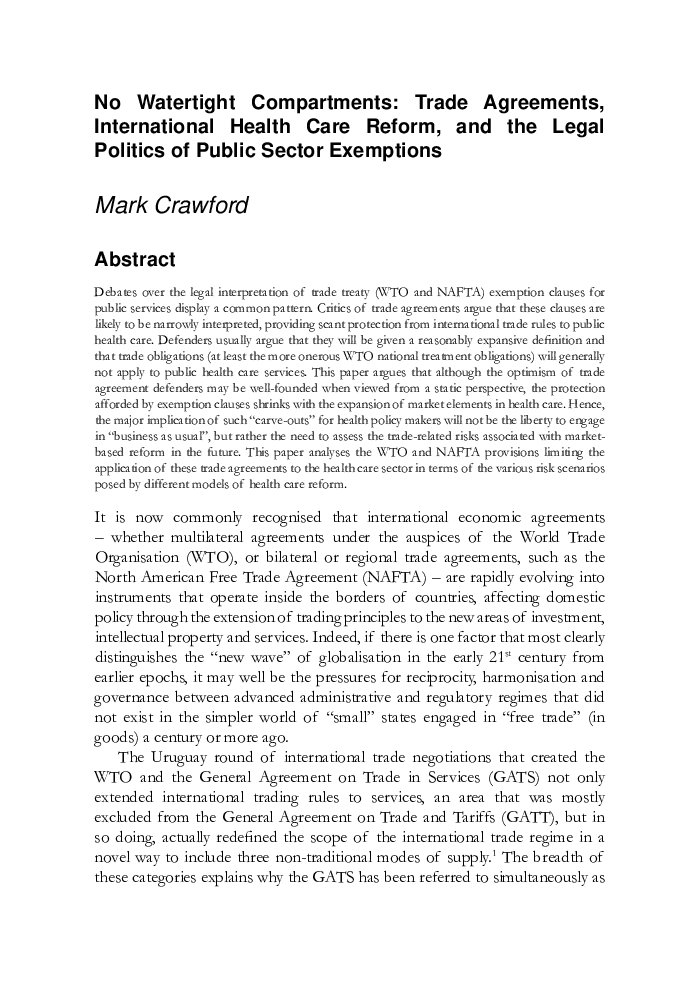| Article ID | Journal | Published Year | Pages | File Type |
|---|---|---|---|---|
| 1061661 | Policy and Society | 2006 | 21 Pages |
Debates over the legal interpretationof trade treaty (WTO and NAFTA) exemption clauses for public services display a common pattern. Critics of trade agreements argue that these clause sare likely to be narrowly interpreted, providing scant protection from international trade rules to public health care. Defenders usually argue that they will be given a reasonably expansive deinition and that trade obligations (atleast the more onerous WTO national treatment obligations) will generally not apply to public health care services. This paper argues that although the optimism of trade agreement defenders may be well-founded when viewed from a static perspective, the protection afforded by exemption clauses shrinks with the expansion of market elements in healthcare. Hence, the major implication of such “carve-outs” for health policy makers will not be the liberty to engage in “business as usual”, but rather the need to assess the trade-related risks associated with market-based reform in the future. This paper analyses theWTO and NAFTA provisions limiting the application of these trade agreements to the health care sector in terms of the various risk scenarios posed by different models of health care reform.
